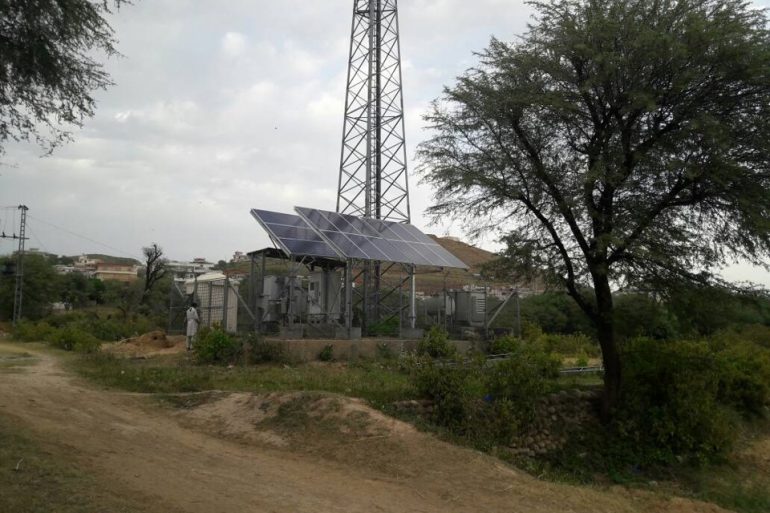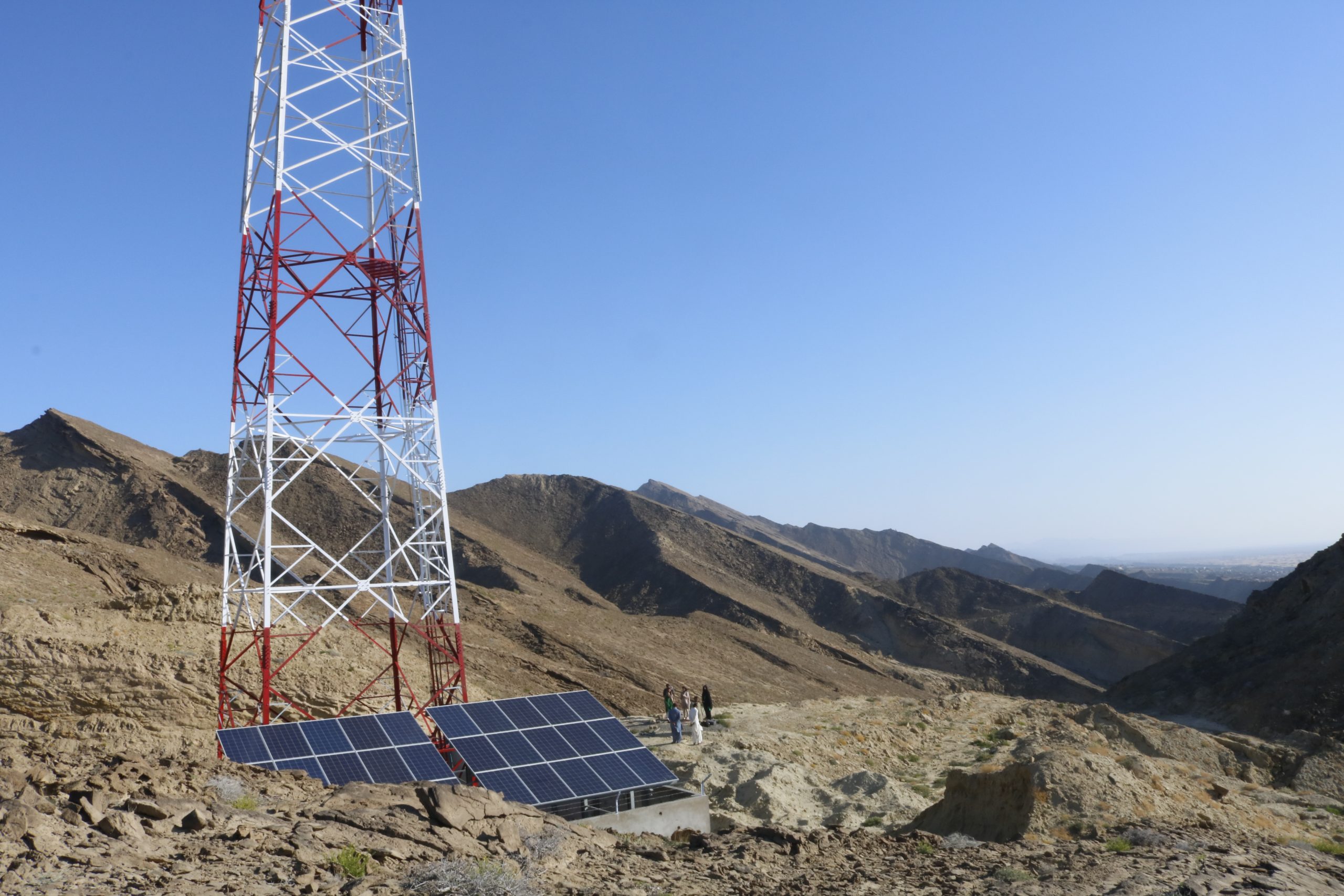Solar to improve efficiency of Pakistan’s telecom sites
Pakistan
500+ MW Solar PV
90 MWh REFLEX
5,500 Telco Towers


TowerXchange: Is there an opportunity for a third party Energy Services Company (ESCO) to work alongside Edotco in the provision of primary and backup power solutions in Pakistan, or is the plan for Edotco to deliver such capabilities in-house? Salman Khalili, Head of Telco, Reon Energy: The tower co.s concept is still new to Pakistan and it has still to witness a large successful transaction go through. We certainly believe ESCO is workable as it takes care of half the job a tower co. is expected to do – provide uninterrupted power at a fixed rate of consumption and maintain the uptime Service Level Agreement (SLA) regardless of how energy is generated or stored. From a tower co perspective, we believe that a pass-through energy cost model will not be lucrative enough for telecom operators as energy management is not their core business and they are always searching for options to outsource non-core business to go lean and less OpEx intensive. Suppliers with core expertise in power generation and storage solutions always have an opportunity to combine strengths and maximize margins for operators and tower companies alike. Reon has recently signed a 5MW solar energy sales contract with a mining company and is actively pursuing similar deals in the telco space as well.
TowerXchange: One of the principle challenges ESCOs must overcome is the cost of capital compared to tower co.s – how can larger EPC and IPP companies like Reon help hybrid and renewable telecom energy projects access low-cost capital? Salman Khalili, Head of Telco, Reon Energy: Capital is a challenge when it comes to ESCO. However, it is much easier to get access to capital for green initiatives if backed up by a well thought out contract covering risks. Reon, as part of the largest private group in Pakistan, already has access to the cheapest cost of capital and invests in longer-term energy projects. Investors in SPV’s of Reon, who provide long term energy contracts, are some of the top global corporates and by pooling an ESCO with its existing renewable portfolio it offers low-cost capital in line with those typically available to telecom operators or tower companies.
TowerXchange: Does Reon Energy have any activity or appetite for, telecom energy projects outside Pakistan? If so where? Salman Khalili, Head of Telco, Reon Energy: Currently, Reon does not have any activity outside Pakistan simply because there is massive potential within the country that needs to be unearthed and we are focused on harnessing that before moving out. However, the appetite is there and as a part of the wider group strategy, the company will be keen to look at international opportunities as well. Apart from Telecom, we have worked with partners and have assessed solar projects in Poland and Turkey. The strategy that the group employs is to go with existing local players in new markets whereby it combines its low-cost capital and strong engineering strength with local partners’ local knowledge and capabilities. It also offers partners the principals of reciprocity where they are offered to come into the local Pakistani market on the back of Reon. Countries in the Far East, GCC, and South America are markets we will be happy to explore with the right partners.
>TowerXchange: Do you see cell site energy as a self-contained opportunity, or is there an opportunity to extend rural cell site energy solutions to provide power to local communities? Salman Khalili, Head of Telco, Reon Energy: Absolutely, there is an opportunity to make these towers more powerful. Reon is already working with Edotco to use one of their tower locations in an off-grid area to set up a mini-grid that serves the local community. This is a part of Edotco’s “Tower to Power” drive. We are also working with financial institutions like microfinance and mobile banks on a similar model. This would allow us to create an impact across multiple UN Sustainable Development Goals, especially SDG 7 on making sustainable energy available at an affordable price, SDG9 on improving ICT and connectivity, and many others through improved financial inclusion.
TowerXchange: Finally, please sum up Reon Energy Solutions’ vision for the future of telecom energy. Salman Khalili, Head of Telco, Reon Energy: Reon offers customized small, medium and large-scale solar solutions with a vision to create an energy-rich future while upholding our commitment to the planet through safe and sustainable practices. We understand it is imperative to have affordable and reliable power for business continuity. Reon brings with it unparalleled partnership stories from local and international groups and, with an in-house product development team, we continue to explore possibilities to enhance a partner ecosystem where we create great value for our customers. We strive to be the preferred energy partner for all telecom players by offering a wide array of solar energy, storage, and asset management solutions, backed by multiple commercial engagement models to choose from.
>TowerXchange: Do you see cell site energy as a self-contained opportunity, or is there an opportunity to extend rural cell site energy solutions to provide power to local communities? Salman Khalili, Head of Telco, Reon Energy: Absolutely, there is an opportunity to make these towers more powerful. Reon is already working with Edotco to use one of their tower locations in an off-grid area to set up a mini-grid that serves the local community. This is a part of Edotco’s “Tower to Power” drive. We are also working with financial institutions like microfinance and mobile banks on a similar model. This would allow us to create an impact across multiple UN Sustainable Development Goals, especially SDG 7 on making sustainable energy available at an affordable price, SDG9 on improving ICT and connectivity, and many others through improved financial inclusion.
TowerXchange: Finally, please sum up Reon Energy Solutions’ vision for the future of telecom energy.
Salman Khalili, Head of Telco, Reon Energy: Reon offers customized small, medium and large-scale solar solutions with a vision to create an energy-rich future while upholding our commitment to the planet through safe and sustainable practices. We understand it is imperative to have affordable and reliable power for business continuity. Reon brings with it unparalleled partnership stories from local and international groups and, with an
in-house product development team, we continue to explore possibilities to enhance a partner ecosystem where we create great value for our customers.
We strive to be the preferred energy partner for all telecom players by offering a wide array of solar energy, storage, and asset management solutions, backed by multiple commercial engagement models to choose from.


